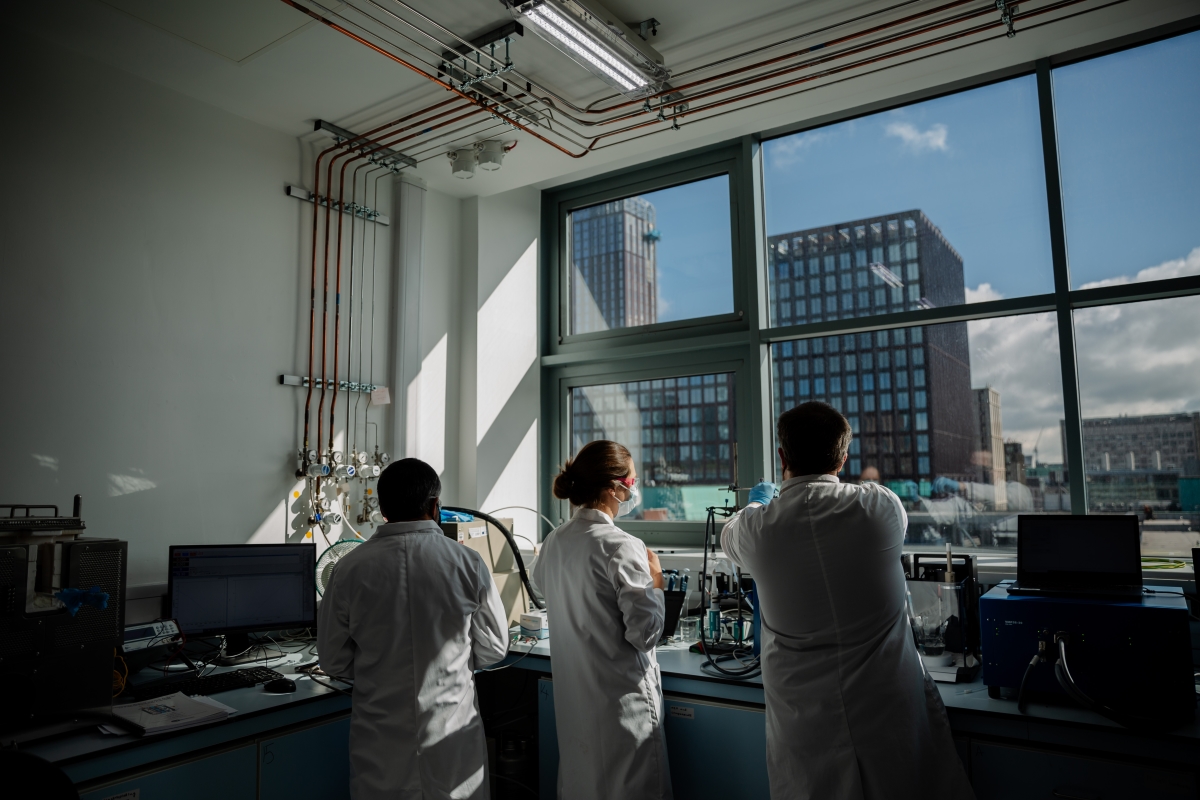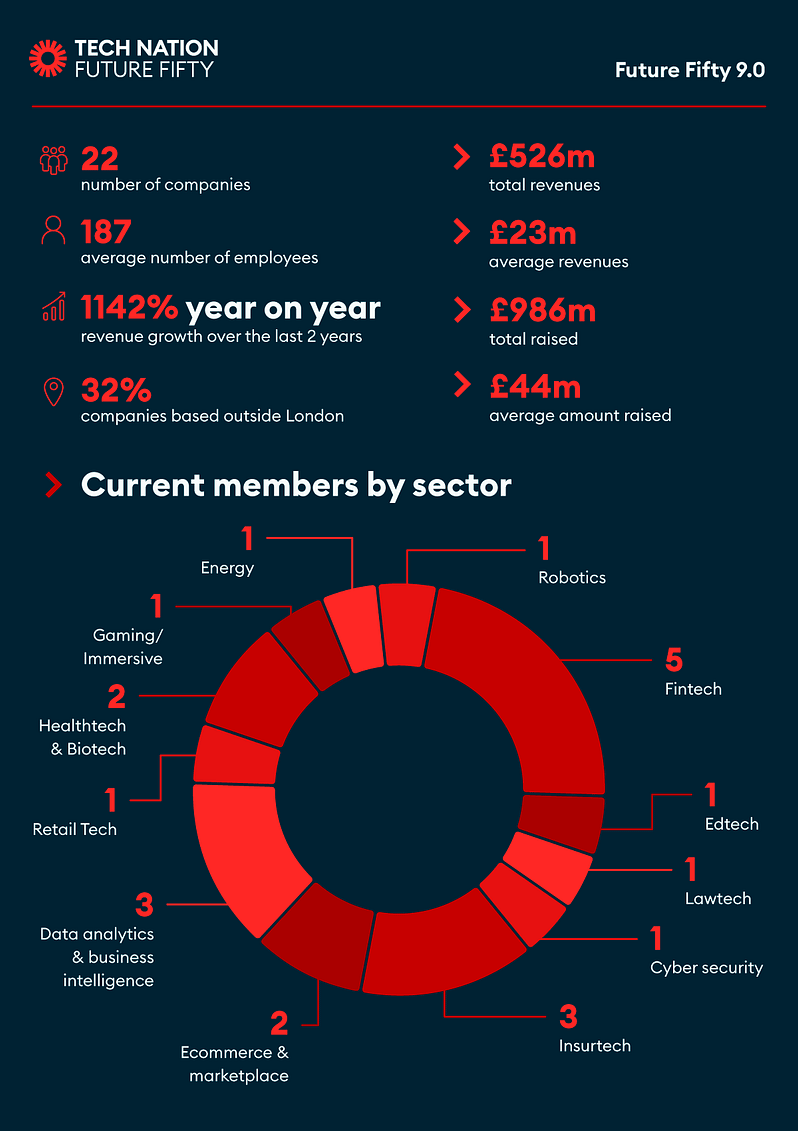Insights
Graphene fuels research into more cost-effective components for hydrogen-cell vehicles
The benefit of Greater Manchester’s investment in advanced materials infrastructure has been demonstrated by international collaboration in next generation hydrogen-fuel technology.
The cost of hydrogen fuel-cells could fall thanks to collaborative research by Manchester Metropolitan University scientists and representatives of an Australian company attracted to Manchester by its strengths in advanced materials.
The work could increase interest in hydrogen as an alternative to fossil fuels and electric batteries for powering vehicles.
Polymer Electrolyte Membrane Fuel Cells (PEM-FC) are already being used to power hydrogen-fuelled vehicles, with early adoption underway in mass transport and fleet markets.
Like battery-powered electric vehicles, no carbon emissions are produced but the PEM-FC has the added advantage that range can be extended by increasing fuel capacity.
However, PEM-FCs currently rely on expensive platinum catalysts for oxygen reduction reactions that must take place in the fuel cell’s cathode.
Demonstrating the impact of Greater Manchester’s investment and expertise in advanced materials research, a team working at Manchester Metropolitan University’s Hydrogen Fuel Cell Innovation Centre has shown that metal oxide coated graphene is an effective alternative catalyst.
Working alongside Australian company First Graphene, Drs Yagya Regmi and Laurie King of the Manchester Fuel Cell Innovation Centre at Manchester Metropolitan University, tested metal oxide coated PureGRAPH® materials as potential oxygen reduction reaction (ORR) catalysts.
Initial results confirm that metal oxide coated PureGRAPH® is an effective catalyst and has the potential to be used as a cheaper alternative to platinum in the next generation of fuel cells.
Both parties will now undertake a four-month collaborative project, funded by the Manchester Metropolitan’s Business Engagement Seed Fund.
The fund supports academic engagement with industrial clients to address real-world business needs. In this case it will support the development of new products in hydrogen and fuel cell technology.
The team will focus on further optimisation of the test devices and extended comparisons with current industrial catalysts.
The metal oxide coated PureGRAPH® catalysts were manufactured using intellectual property exclusively licensed to First Graphene from the University of Manchester, and provide additional opportunities including a route to supercapacitor materials.
Dr Regmi and Dr King are recognised experts in the field of hydrogen fuel cells and recently presented to the UK’s All-Party Parliamentary Climate Change Group.
Dr Yagya Regmi said:
“These are very encouraging results. They demonstrate the potential for First Graphene’s PureGRAPH® materials to be used as catalysts in alkaline fuel cells. Subject to further optimisation, they could provide a lower cost alternative to platinum-based catalysts.”
Mike Bell – CEO of First Graphene Ltd, which has a base at the Graphene Engineering Innovation Centre at the University of Manchester, said:
“This is a great result that consolidates our position in the growing energy storage market. It showcases our capability as an innovative and technically capable company, willing to work with world-class research teams.”
Christopher Taylor – Manchester Metropolitan University – MFCIC ERDF Program Lead said:
“This is a great outcome. The hydrogen economy has developed at a rapid pace during the programme, and we’re pleased that FGR have engaged with us so positively.”
Tim Newns, CEO of MIDAS, Manchester’s Inward Investment Agency, said:
“This collaboration between First Graphene, an Australian investor and leader in the commercialisation of graphene applications, and the Hydrogen Fuel Cell Innovation Centre at Manchester Metropolitan University is a superb example of the attraction to international investors of Greater Manchester’s leading-edge science and innovation offer.
“It truly demonstrates the city-region’s unique ability to come together and unite world-class research and expertise to enable rapid transformation for carbon neutrality.”

Manchester Fuel Cell Innovation Centre
University of Manchester partners in £500m fund to boost Northern innovation through spinout commercialisation
The Universities of Manchester, Leeds and Sheffield are launching a new investment company to help boost the commercialisation of university spinouts and start-ups in the North of England.
The company, called Northern Gritstone, will fund spinout enterprises from each institution using external capital raised from a range of different investors.
These businesses will either be newly formed spinouts or ones historically founded by or linked to the universities.
The company also aims to be a key part of the Government’s ‘Build Back Better’ levelling up agenda and Plan for Growth in the North.
The three Universities initially came together in 2018 to create the Northern Triangle Initiative and secured a £5million award from the Research England Connecting Capabilities Fund (CCF).
By 2020 the CCF had supported around 20 commercially viable projects, substantially improving commercialisation rates across the three Universities, and generating a sustainable pipeline of University spinouts.
Northern Gritstone will build on this successful collaboration by providing significant start-up and follow-on funding to support the Intellectual Property developed at Leeds, Manchester, and Sheffield.
Northern Gritstone plans to raise up to £500 million from strategic corporate partners, institutional investors, and qualifying individuals. If successful, the financing will make Northern Gritstone one of the largest dedicated investors into the commercialisation of university science and technology related Intellectual Property in the UK.
Northern Gritstone will provide funding for a diverse range of companies across areas such as advanced materials and manufacturing, health and life sciences, artificial intelligence, and data sciences
Professor Luke Georghiou, Deputy President and Deputy Vice-Chancellor at The University of Manchester, said:
“Northern Gritstone will play a key role in the Government’s levelling up agenda and help the North of England’s local and regional economies to ‘Build, Back, Better,’ following the pandemic and economic burdens of lockdown.”

Economic impact of MediaCityUK’s success highlighted by KPMG report for BBC
The economic impact of the BBC’s move to Salford a decade ago is revealed in a report from professional services firm KPMG.
Underlining the strength of the digital, creative and media sector in Greater Manchester, it highlights how the BBC, through its presence and investment, played a role in cultivating Salford as a “creative and digital cluster” over the last decade.
Supporting the continued growth of the digital and creative sector is a priority within the Economic Vision for Greater Manchester. Digital, Creative and Media was identified as a global frontier sector strength in the Greater Manchester Local Industrial Strategy.
The KPMG report: An Assessment of the Economic Impact of the BBC (available here) was conducted before the April 2021 publication of The BBC Across the UK, which included plans to expand the BBC workforce in Salford beyond the 3,500 current staff and shift new services to MediaCityUK.
It found that:
• The largest share of the BBC’s economic contribution outside of London is generated in the North West of England (31% of the BBC’s direct GVA and 19% of its total GVA), reflecting the BBC’s significant activities in Salford. The BBC’s total GVA in the North West of £453m in 2019/20 accounted for approximately 0.2% of the region’s GVA in 2019.
• MediaCityUK is a prime example of the “network and cluster spillovers” generated by the BBC through its role in creating local specialist clusters of creative and digital talent.
• Employment in the creative and digital sector in Salford has since grown by 142%, from 6,310 employees in 2010 to 15,275 employees in 2019, compared to growth of 26% in these sectors across Great Britain over the same period. The BBC directly accounted for 34% of this growth, with the remainder being in the wider creative and digital sector, at least in part driven by wider firms clustering around the BBC in MediaCityUK and benefitting from BBC spending with them.
• This is reflected in the number of digital or creative businesses in Salford which has grown by 70% since 2010, from 565 to 955, compared to growth of 44% in these sectors in the UK as a whole.
• The latest BBC data for 2019/20 shows that the BBC now supports 3,048 direct FTE jobs in Salford and 159 indirect FTEs in Salford through supply chain expenditure.
• The report suggests a direct link between the BBC’s move to Salford and the relocation of other creative and digital businesses, including SIS, ITV, Ericsson, AJ Bell, Kelloggs and TalkTalk. Additionally, the University of Salford opened and new research space at MediaCityUK.
KPMG’s report was drawn from a quantified assessment of the BBC’s contribution to the UK economy in terms of GVA and a “largely qualitative” assessment of the role of the BBC in supporting the growth of the creative and digital sector, as well as the wider UK economy.
For more information go to:
https://www.bbc.co.uk/mediacentre/2021/kpmg-economic-impact

Global challenges stimulate innovation for a better planet enabled by advanced materials
Advanced materials event hosted by GM LEP explored the future for global cities by 2038, when Greater Manchester aims to have achieved net carbon neutrality.
The twin challenges of climate change and coronavirus are likely to have accelerated innovation in advanced materials to support low carbon growth.
That was one of the conclusions of a roundtable discussion between senior commentators from industry, academia and public sector policy.
Hosted by GM LEP in partnership with MIDAS, Greater Manchester’s inward investment agency, and Graphene@Manchester, part of The University of Manchester, Material Gains: Building better cities for people and the planet, was led by Alok Jha, science correspondent with The Economist.
Panellists were Professor Dame Nancy Rothwell, GM LEP board member and President and Vice-Chancellor of The University of Manchester; Tim Newns, CEO of MIDAS; Dr Beenish Siddique, founder and CEO of AEH Innovative Hydrogel; and James Baker, CEO of Graphene@Manchester.
They were asked for their views of the likely shape of Greater Manchester and other global cities by 2038.
Watch the video for a replay of the session.
Three GM companies listed among Tech Nation’s Future 50 9.0 cohort
Three companies from Greater Manchester have joined the prestigious programme for late-stage tech companies – Future Fifty 9.0.
Peak, Push Doctor and Sorted are among the 22 companies who have joined the programme this year.
Future Fifty is Europe’s leading late-stage growth programme, designed to bring together, empower, and accelerate the growth of the most successful tech companies in the UK.
Programme alumni include Monzo, Starling Bank, Darktrace, among others.
131 companies have taken part in the programme since its inception, collectively raising $11bn, with nine companies going on to IPO.
Peak
Peak is helping the world’s smartest companies put the power of AI at the centre of all commercial decision making. With Decision Intelligence, a brand-new category of AI-driven software and services, they’re helping their clients unlock the value of their data and start bringing certainty to their decision making, powered by AI.
Push Doctor
Empowering people to engage with their health on their terms, Push Doctor works in partnership with NHS practices, PCNs and CCGs across the country. It provides the platform and technology to allow safe and secure video consultations with NHS GPs, empowers patients and clinicians to leverage the benefits of a digital solution, and fully integrates with NHS clinical systems to ensure continuity of patient safety and care.
Sorted
Sorted is a global SaaS company, giving retailers full control of delivery management – whether that’s optimising checkout delivery options, enhancing carrier management in the warehouse or providing market-leading post-purchase CX. Sorted’s software is live in 19 countries around the world and offers access to a carrier library of 1000+ services.
You can access the full 9.0 cohort here.
Rt Hon Rishi Sunak MP, Chancellor of the Exchequer, said:
“The UK tech’s sector is set to be the cornerstone of UK economic growth after the pandemic, and the companies in this year’s Future Fifty cohort are a shining example of our nation’s innovation, entrepreneurship and resilience. Nurturing the growth of these scaling companies at such a critical stage is a national priority, as these are the businesses who are already shaping our future both locally and globally.”

Gerdau Graphene launches to capitalise on Greater Manchester’s 2D materials capabilities
Gerdau, the Brazil-based steel giant and Tier 1 Partner of Graphene@Manchester, has inaugurated a new company called Gerdau Graphene, which will develop and market products based on graphene applications.
The firm is also in the process of increasing its presence and capabilities in the Graphene Engineering Innovation Centre (GEIC) at The University of Manchester.
The GEIC was co-funded by Greater Manchester Local Enterprise Partnership in support of its work to further the economic impact of innovation in applications for advanced materials across the city-region.
Advanced materials were identified as a global frontier sector strength in the Greater Manchester Local Industrial Strategy.
Gerdau Graphene will work in partnership with the University as part of a global strategic alliance, with the aim of becoming a leading developer of graphene-enhanced products in the Americas.
It will operate independently from its parent company’s steel business divisions. It will offer pioneering technology to the construction, industrial and automotive lubricants, rubber, thermoplastics, coatings and sensors industries in Brazil and in countries across North America.
The new company is part of the portfolio of Gerdau Next, the new business division launched by Gerdau in the second half of 2020 to operate in new segments apart from steel.
“Our market entry is unique, thanks to our proposition of making graphene production on a large scale commercially viable,” explained Alexandre Corrêa, General Manager of Gerdau Graphene.
“We are reaching the market with the advantage of being part of a solid group that enjoys high global credibility, whilst operating under the philosophy of open innovation in collaboration with multiple ecosystems and partners.
“We have already been working with graphene in Manchester – the ‘home of graphene’ – since 2019. Thanks to strategic alliances already established in this new business, we are confident that Gerdau Graphene will be an important player in the Americas.”
Gerdau has been researching graphene for four years. In 2019, it entered into a partnership with the GEIC to conduct research on graphene. At the time, Gerdau joined a select group of companies across the globe with exclusive space for research at the GEIC, a global centre of excellence in graphene innovation, whose leaders advocates open innovation and collaboration.
“Having Gerdau as a Tier 1 Partner of the Graphene Engineering Innovation Centre has been rewarding for all concerned,” said James Baker, CEO Graphene@Manchester.
“This is a company that has a strong heritage but also continues to pioneer and through Gerdau Graphene will open a new chapter for partnership and collaboration between us. This is a very exciting opportunity.”
Senior Project Manager for Gerdau Graphene, Danilo Mariano, who is based in the GEIC, added:
“When you live for advanced materials innovation there is no better place to be in Europe than Manchester.
“We are adding personnel and equipment to support material platform development in our lab space in the GEIC. We’re also expanding our collaborations within academia through the Henry Royce Institute as well as partnering with high-potential start-ups.”
Inside the GEIC: the Partner’s story – Gerdau
